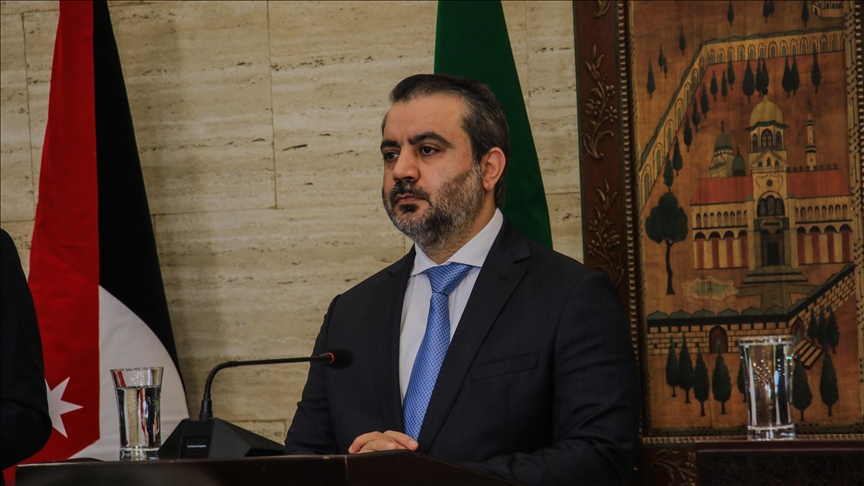Normalization with Israel 'difficult' due to threats, occupation territories: Syrian foreign minister
Asaad Al-Shaibani cites Israeli occupation of buffer zone, Golan Heights as obstacles to Abraham Accords
 Syrian Foreign Minister Asaad al-Shaibani
Syrian Foreign Minister Asaad al-Shaibani
ISTANBUL
Syrian Foreign Minister Asaad al-Shaibani said normalizing relations with Israel is "difficult" because Israel continues to threaten Syria and occupy its territories.
"Speaking of normalization and the Abraham Accords at this time is difficult, particularly since Syria remains threatened by Israel, the Golan continues to be occupied, and other Syrian territories were occupied after the 8th of December," Shaibani told CNN in an interview aired Sunday.
Shaibani spoke on Thursday at a Council on Foreign Relations event in New York during his visit to the 80th UN General Assembly.
He said Syria has declared it poses "no threat to anyone in the region, including Israel," but these positive messages were "met with these threats."
When asked why Israel attacked Syria, Shaibani said he does not know the reason and added: "There is an Israeli position that they want one strong, unified Syria. However, Israeli practices run counter to that."
Following the fall of the Bashar al-Assad regime last December, Israel has launched hundreds of strikes targeting military sites and assets across Syria, including fighter jets, missile systems, and air defense installations.
Israel also expanded its occupation of the Syrian Golan Heights by seizing the demilitarized buffer zone, a move that violated a 1974 disengagement agreement with Syria.
Future vision
Looking ahead five years, he outlined Syria's aspirations for becoming "a real strong state" that is economically viable and stable, with all Syrians abroad coming back and investing in their country.
He envisions "a Syria that establishes friendly and cooperative relations with its neighbors" and maintains "strategic ties" with the US as it remains open for engagements with the whole world.
"A unified and strong Syria will be in the interest of regional peace and in the interest of Israel as well," he said.
Since Assad’s ouster in late 2024, Syria’s new administration has pursued political and economic reforms while promoting social cohesion and working to expand cooperation with regional and international partners.
Assad, Syria’s leader for nearly 25 years, fled to Russia last December, ending the Baath Party regime, which had been in power since 1963. Sharaa’s new transitional administration was formed in January.








